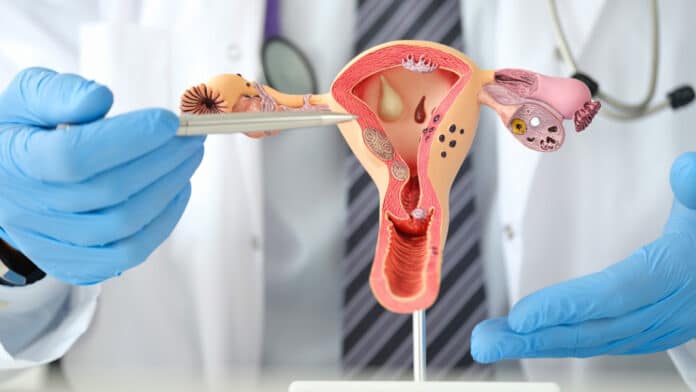A recent scientific study has explored the role of mutations in a specific gene called the “estrogen receptor” in relation to endometrial cancers, which occur in the uterus lining. This research has revealed valuable insights that could potentially lead to new and effective treatments for this type of cancer.
Researchers at Huntsman Cancer Institute at The University of Utah have found possible new treatments for people with endometrial cancer. This type of cancer is common among women; high estrogen levels often boost its growth. The study, published in Molecular Cancer Research, showed that mutations in estrogen receptors—genes related to estrogen—in endometrial cancer lead to significant changes in how these cancer cells behave.
Estrogen is a hormone that activates certain parts called estrogen receptors. Sometimes, cancer can make these receptors stay active all the time. It can make the lining of the uterus shed more than usual.
Zannel Blanchard, Ph.D., a postdoctoral fellow at Huntsman Cancer Institute and lead investigator on the study, said, “Our goal was to characterize estrogen receptor mutations in endometrial cancer to see how they affected gene expression, along with how these mutations made cells more aggressive and fast-growing. We found that the mutations caused large gene expression and cellular behavior changes.”
The team used what they found to find possible treatments for endometrial cancers that have too much active estrogen receptors. They discovered that medicines that stop a protein called CDK9, which works with these receptors, can help slow down the growth and aggressiveness of endometrial cancer cells.
There’s only one approved drug from a long time ago to treat this kind of cancer, and it’s not enough. Jay Gertz, who works at Huntsman Cancer Institute, said, “these findings are a step towards personalized treatments for endometrial cancer.” It means treating each person in a way that’s best for them.
The study’s results were shared with breast and gynecologic cancer research patients. They meet monthly at Huntsman Cancer Institute to discuss how research is going. One patient, Deb Jordan, said, “they help researchers by writing letters and giving their points of view.” She feels better knowing that much work is being done for endometrial cancer.
Blanchard, another patient, is excited about the study’s results. It means there might be more options for people with endometrial cancer. The findings show that a lot is happening behind the scenes, and this information can help patients who have already been treated.
Gertz explains that choices for treating endometrial cancer are few, and patients inspire researchers to discover new treatments. It drives his lab to learn more about the disease and develop fresh therapies.
The study proposes that looking at tumor details on a molecular level might offer more personalized treatment for people with endometrial cancer.
Journal reference:
- Zannel Blanchard , Craig M. Rush et al., Allele-specific Gene Regulation, Phenotypes, and Therapeutic Vulnerabilities in Estrogen Receptor Alpha–mutant Endometrial Cancer. Molecular Cancer Research. DOI: 10.1158/1541-7786.MCR-22-0848.
